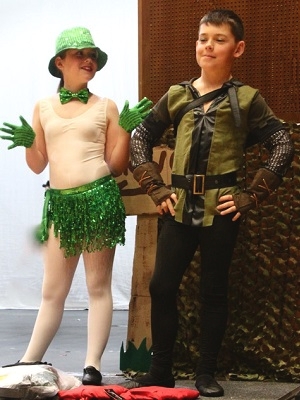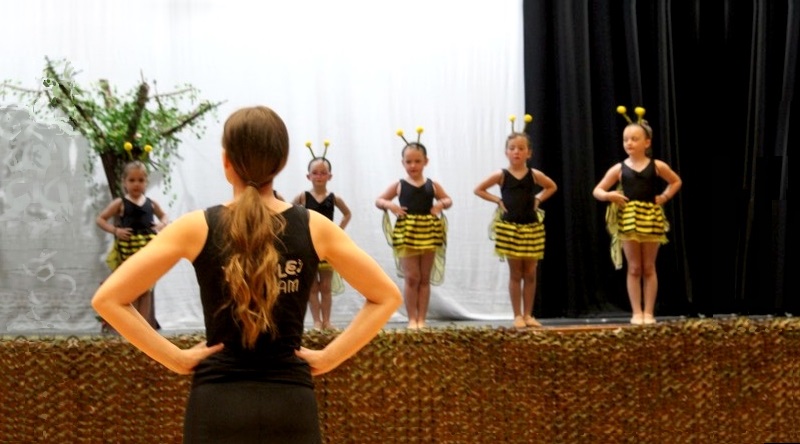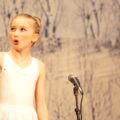Who doesn’t love applause? | Drama Classes for Neurodivergent Kids
As a child I was terrified of the dark, obviously, and of drawing attention to myself. I never raised a hand in class, lived in fear of being asked a question by the teacher or worse, being made to go to the next classroom and knock on the door (people would hear) and ask for a board rubber or chalk (people would stare and yes, I’m old enough to remember chalk boards).
 Unfortunately for someone who had chronic ‘I’m not here’ syndrome I was related to my worst fear – my nemesis, the no filter, no *cares* given sibling. My younger brother sang loudly in shops from his pushchair, as an older child he told rubbish jokes to anyone who’d listen and generally did anything possible to be the centre of attention. Horrifying.
Unfortunately for someone who had chronic ‘I’m not here’ syndrome I was related to my worst fear – my nemesis, the no filter, no *cares* given sibling. My younger brother sang loudly in shops from his pushchair, as an older child he told rubbish jokes to anyone who’d listen and generally did anything possible to be the centre of attention. Horrifying.
Interestingly though, my brother and I had one thing in common. We were both really good at performing. My brother from birth, apparently, and I from my teens. My brother was always chosen to play weird and wonderful characters in Gang Shows and school productions. Everyone said he would be the actor in the family though his career went sideways into sales, something he excels at because he has that natural charisma and gift of the gab. I’d place bets on him managing to sell ice skates to Santa.
I used drama as a platform to rid myself of my anxiety, it created a persona to cope with it and now as a trained actor and performer of over 25 years I can stand in front of an audience, a classroom or any crowd with confidence. I believe truly that had I not been allowed to study drama and dance in high school I would have gone through life as a totally different person to the one I am today and would never have experienced many of the things that have rounded me as an adult. But that’s another argument for the benefits of funding the arts in schools so we’ll leave that for another time…
Recently, the idea that drama can help young people with neurodivergence to develop and master skills which will carry them forward has gained a lot of traction. Kids with ADHD especially can benefit – people’s initial view of them may be that they are disruptive, loud and outspoken. Sounds like perfect material for performing arts! They’re joy to teach and any drama class is much more fun with a number of children eager to contribute, get up and do.
As someone who has worked with kids for the last …. years, I already know that drama classes are good for shy and for boisterous children, for those keen to implement any creative ideas they may have and those, who are reluctant to use their imagination; but for children with ADHD performing arts tuition can be a real gift. For them, drama lessons can become a safe space where behaviour which may normally be frowned on can be accepted and even applauded. The positives of drama for kids with ADHD are huge. Here are some examples.
- Freedom to be themselves – the performing arts are perfect for tapping into the wealth of creativity typically found in an ADHD brain, allowing them to excel at games requiring improvisation, a creative input and equally encouraging others to step up to their level; a winning formula all round.
- Aiding focus – the discipline of rehearsal, from learning lines to listening for cues is a fantastic way to channel energy and give children a challenge with a positive outcome.
- Physical fun – for children who struggle with vocalising, things such as character work, physical theatre techniques (mask work or mime) and dance can help with expression and allow them to use their body to communicate ideas and release energy and tension.
- Routine vs spontaneity – both of these elements appear in performing arts classes. The structure of a ballet, singing or drama class, repetitiveness of rehearsal coupled with the learning of new material can give children the security of familiarity while the injection of a creative boost stops it becoming boring.
- Teamwork – it might seem a cliché, but for children that may find social interaction overwhelming, having a platform to give their opinion on a subject tailored to their abilities is both liberating and confidence building. Every role, no matter how big or small, is crucial in a play or musical so being part of that team is an essential part of validating a child’s sense of self-worth.
And finally, no matter who you are or why you are on the stage, who doesn’t love applause?? The roar of the crowd – at the end of all the rehearsal, line learning, dance practice and effort there is a very real and rewarding prize…appreciation. From Hamilton to Lady Macbeth to the third spear holder from the left; character names are the only labels we give to an actor in theatre. No one watching would know any different, it’s truly a blank canvas, an anonymous platform for everyone to fit in.






